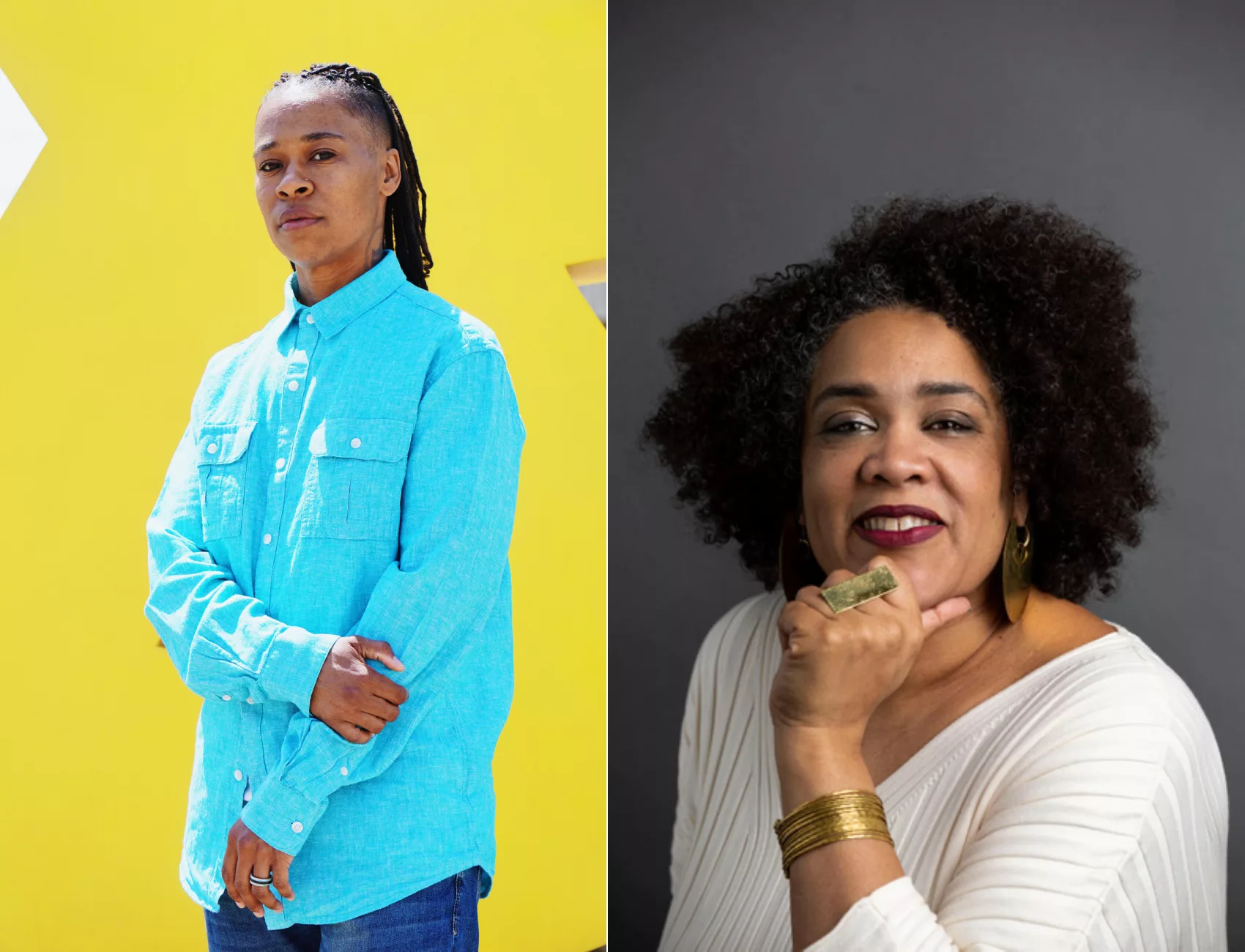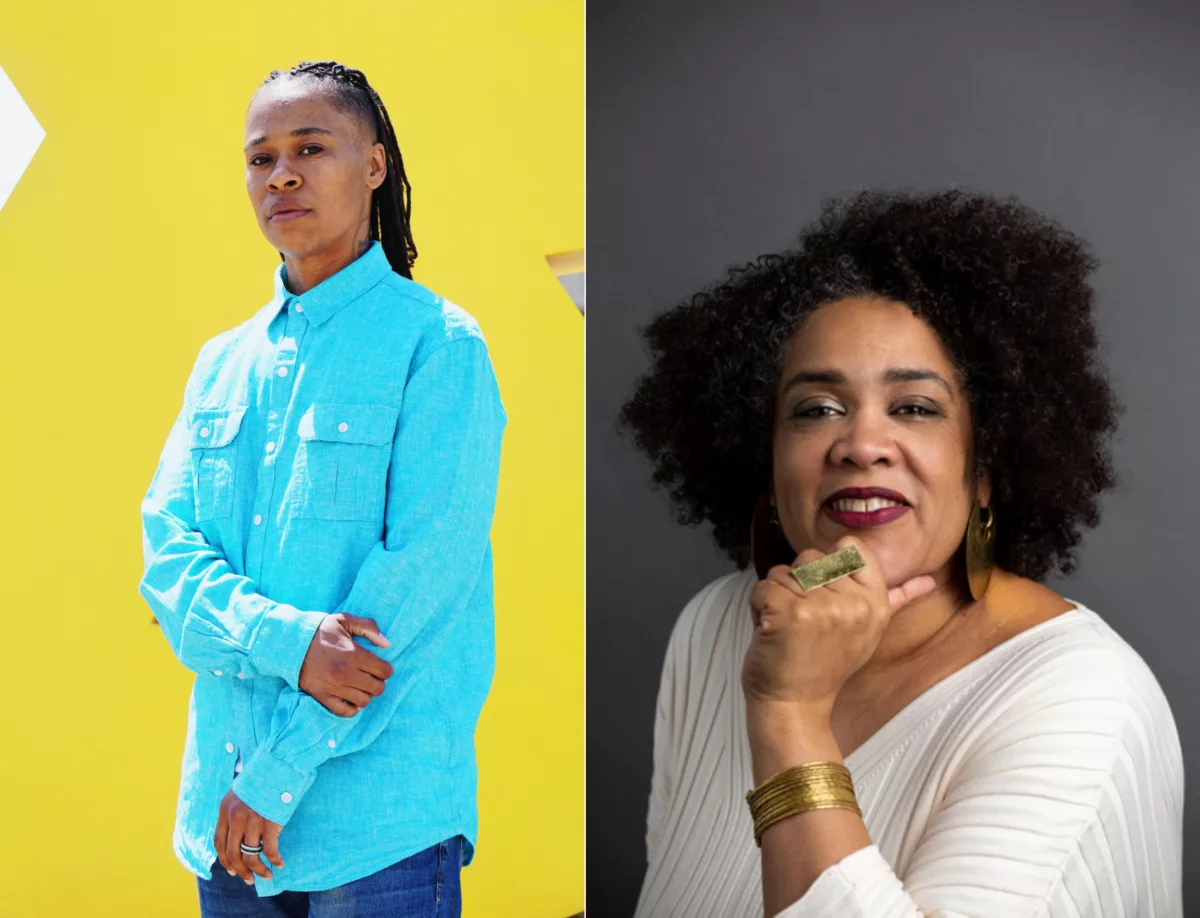Newsletter
Dreaming at the Crossroads of Liberation, Collective Care, and Safety
In Healing Justice Lineages, Cara Page and Erica Woodland document a history of care models that don’t involve the prison industrial complex.


Dreaming at the Crossroads of Liberation, Collective Care, and Safety
by Erica Woodland and Cara Page
Cara Page and Erica Woodland’s new book, Healing Justice Lineages, documents a history of care models that don’t involve the prison industrial complex. Page and Woodland, who write from their experiences as Black, queer organizers and therapists, want to inspire readers to use those models to fight generational trauma and systemic oppression today. In this week’s newsletter, we’re publishing an excerpt from Page and Woodland’s book, which grapples with how to build an abolitionist future in our current carceral reality.
As abolitionists, a core tension that we must grapple with is how to create alternative models while living in the reality that at times we need to depend on the current carceral systems for our survival. Any crisis response that involves law enforcement introduces the risk of arrest or the use of deadly force. Seeking care from health and mental health providers, who are mandated reporters, can lead to surveillance and family disruption as a result of child protective services. We know the state will not save us.
So we rely on each other—an interdependent ecosystem of care created and sustained by BIPOC, Queer, Trans, sick, disabled, undocumented, and poor folks, sex workers, and drug users showing up for each other. We must remember, because it is part of the colonialist project not to, that we have so much to draw from as we imagine care and safety without policing and surveillance. We need long-term infrastructure rooted in healing justice made of the material, relational, and spiritual systems and networks to weave an ecosystem of care based in abolition.
It is important to document what we are learning so we are prepared for the next uprising, incidence of mass violence, or climate catastrophe. We know they are coming and must be ready. Some of that infrastructure work is already happening as abolitionist groups, like the ones explored in this chapter, are creating alternatives to carceral care strategies that ground us in real-world examples of how to get free and take care of each other.
The Anti-Police Terror Project created the Mental Health First Programs (MH First) in Oakland and Sacramento in December 2019 and August 2020. These programs are the only non-911 responses to mental health crises in these cities. MH First works to decriminalize and destigmatize emotional and mental health crises while addressing their root causes. They are building a network of first responders committed to abolitionist practice, organizing (and winning) campaigns to divest from law enforcement and reinvest in community-led strategies, supporting families who are survivors of state violence, and running a free crisis hotline.
Fireweed Collective, a mutual aid organization committed to the principles of healing justice, offers another powerful abolitionist model to learn from. Fireweed Collective (formerly known as the Icarus Project) offers peer support groups, webinars, and tools to support the emotional wellness of all people while disrupting harm and violence perpetuated by the mental health system.
Interrupting Criminalization (IC) works to end the criminalization of women and LGBTQTSI+ People of Color by providing capacity building and tools for communities to develop abolitionist responses to violence, harm, and crisis. From toolkits and trainings on nonpolice responses to crises, to a help desk that supports people to build transformative justice interventions, IC offers real-time support for community-based experiments in care and safety.
Agustina Vidal, Fireweed Collective member, sharing about her work in Argentina to end asylums, reminds us that as we move to dismantle one system we must be vigilant about unintended harmful consequences in our abolition work: We need to acknowledge the asylums are a failure, that we have let people down. We have failed people. But no matter the conditions, people create joy and abolition has to protect that joy. Our principles cannot destroy lives.
It takes risk, rigor, and resources to build alternatives to carceral strategies at the scale we need to collectively survive the immediate and long-term impacts of the next disaster (climate change, state violence, pandemic, etc.). The soil of this infrastructure must be made up of relationships, trust, and the kind of intimacy only forged through rupture and repair, from struggling together to get free. The task is to build models rooted in abolition that call us into the right relationship with ourselves and each other. Agustina Vidal, reflects, “It’s hard for me to think in terms of infrastructure. I think in terms of relationships and humanity. What humanity have we lost, and do we need to recover so that we can do abolition? What bonding have we been robbed of and we need to focus on?”
Andrea Ritchie (Co-Founder of Interrupting Criminalization and the In Our Names Network) explains the importance of building ecosystems of care based on understanding the unique relationships and conditions we are responding to instead of replicating one single model: I think many people who run those programs [mental health crisis response, transformative justice, violence prevention, etc.] that are being lined up as models would be the first to say these programs are unique to the relationships, the conditions, the circumstances, the people involved in them. And so that’s the scale at which we have to build—at the scale of relationship, at the scale of trust, at the scale of local conditions. And so I think we’re all kind of grappling with how we weave that together into an infrastructure that seamlessly meets people’s needs and not just those of us who are connected to a community, or who are aware of the things that are available, or who can access them from where we are in spite of a whole host of barriers.
***
Excerpted from From Healing Justice Lineages by Cara Page & Erica Woodland, published by North Atlantic Books, copyright © 2023 by Cara Page & Erica Woodland. Reprinted by permission of North Atlantic Books.
Cara Page and Erica Woodland write from their experiences as Black, queer organizers and therapists. Page is a cultural memory worker and organizer. Woodland is a licensed clinical social worker and healing justice practitioner.
ICYMI — from The Appeal
Women incarcerated at FCI Tallahassee—the federal women’s prison where Ghislaine Maxwell is held—tell Silja J.A. Talvi that they are subjected to a culture of “rampant” sexual abuse, retaliation, and cover-up. Talvi’s yearlong investigation contradicts recent tabloid coverage depicting a cushy “Club Fed” where Maxwell could relax.
The latest court-appointed monitor’s report provides a macabre portrait of IDOC’s failures to care for sick and elderly prisoners. In one incident, an 80-year-old man with dementia drank bleach that had been left in a soda bottle in his room.
Years after legalization, California police are still using heavy-handed tactics to crack down on marijuana. In the most extreme cases, officers have been charged with personally profiting off stolen cash and marijuana.
How does real-life night court compare to the new sitcom by the same name? Elizabeth Weill-Greenberg recently visited a Manhattan courtroom and found that there was nothing to laugh about. Published with Scalawag.
In recently filed lawsuits and interviews with Molly Hagan, currently and formerly incarcerated women described a culture in which sexual abuse at the hands of New York prison staff is widespread but rarely reported or discussed.
In the news
In Illinois, people with cannabis convictions are still being punished, while legal operators brought in more than a billion dollars in fiscal year 2022. [Tatiana Walk-Morris / Chicago Reader]
As of March of this year, over 10 percent of people incarcerated in Pennsylvania’s two women’s prisons are serving life without parole sentences. [Victoria Law / Truthout]
Crosley Green, a 65-year-old grandfather, was sent back to prison after a federal court ruled to reinstate his conviction. Green spent more than 30 years in prison for a murder he maintains he did not commit and was released in 2021. “The last two years have been the best years of my life,” he said. “I reunited with my family and met my grandkids for the first time.” [Bill Hutchinson / ABC News]
“Job insecurity, housing discrimination, and disability affect many people returning home from prison,” Khawla Nakua writes for Scalawag. “Add to that being a Muslim in the Bible Belt, and the challenges become even more difficult.” [Khawla Nakua / Scalawag]
Exoneree Lamar Johnson met the pen pal he corresponded with for 20 years while he was serving a life sentence for a crime he did not commit. [Steve Hartman / CBS News]
That’s all for this week. As always, feel free to leave us some feedback, and if you want to invest in the future of The Appeal, donate here.
